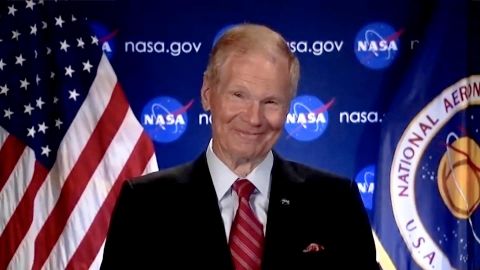Read Transcript EXPAND
DR. RAJIV SHAH, FORMER ADMINISTRATOR, UNITED STATES AGENCY FOR INTERNATIONAL DEVELOPMENT: Like 1941, we find ourselves at war. And we’re at war with a pandemic that has taken 4.6 million lives and threatens to take millions more. We’re at war with climate considerations and climate change that threatens to undermine our ability to exist on Earth. And we are not stepping up in the way that we need to. We need much stronger ways to cooperate as countries, to reinvest in our multilateral institutions, and to reimagine what it takes to protect and serve humanity in this moment as a shared global community. So, we are calling for — much like the Atlantic Charter, which was forged during wartime, we’re calling for countries to come together around a COVID charter and recommit themselves to multilateral action and manners that can work, can be effective at achieving the goals we need to achieve to both beat back this pandemic and protect the planet going forward. It is actually affordable and achievable. And it’s only ever been the case that, during wartime, we have been able to mobilize to do these great things.
BIANNA GOLODRYGA: Well, let’s talk about some of the details, because you’re calling for advanced economies to devote at least 1 percent of their GDP to foreign aid. And this is coming at the same time that we’re seeing the U.K. cut their aid from 0.7 percent of GDP to half-a-percent. So, obviously, this is an ambitious, lofty and commendable goal, but is it really achievable?
SHAH: I think it’s absolutely achievable. Many of us have worked for decades to encourage at least 0.7 percent of GDP in industrial countries to be committed to foreign assistance. And when I was in the Obama administration, I visited church groups and cities across America and rural communities and farmlands. And across the nation, people I spoke to, when they understood that for about 1 percent of our federal budget, less than 1 percent, we were able to get — beat back AIDS, fight Ebola and keep it out of the United States, effectively move hundreds of millions of people out of poverty and off the brink of hunger and starvation, they didn’t ask me to do less. They said, why don’t we do more? And that’s because I think people appreciate everywhere that, once they’re aware of the fact that foreign assistance can be an effective tool to bring stability and prosperity to the farthest corners of the globe, it’s a smart investment for industrial countries to make. And, frankly, it’s an essential element to make right now.
About This Episode EXPAND
Dr. Rajiv Shah; Evan Osnos; Bill Nelson
LEARN MORE


